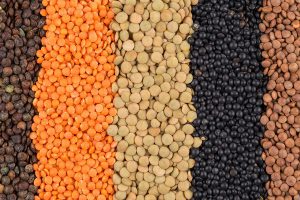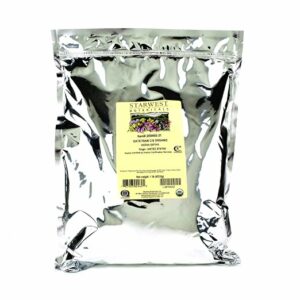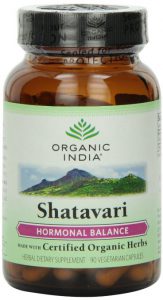Pregnancy is one of the most beautiful phases of life for a woman. But, with so many hormonal challenges, the journey can sometimes be a little unpleasant. In every way possible, Ayurvedic care during pregnancy offers your baby the best possible beginning.
Ayurvedic Care During Pregnancy
Following Ayurvedic care during pregnancy is all about the choices you make during the 9 months. These choices can profoundly enhance the experience of pregnancy and have a lasting effect on your child.
The experiences your baby has in the womb affect and mold his or her personality. Studies show a baby can show the signs of stress even before they are born. Nourishing experiences from conception are transformed into a healthy body and mind, while toxic experiences create unhealthy ones.
By making nourishing choices you can ensure that your baby is receiving the basic elements to create a healthy body, mind, and spirit.
Ayurvedic care During Pregnancy Focuses on Balance
Taking care of yourself as per Ayurveda focuses on creating a balance in the mother’s body through diet, exercise, and relaxation.
A pregnant woman’s diet should be rich in proteins, vitamins, minerals, and antioxidants. Foods that are high in fiber, such as whole grains and fresh fruits and vegetables, are also important.
According to Ayurveda, there are certain foods that should be avoided during pregnancy, including caffeine, alcohol, fried foods, and processed foods.
Exercise is also important for pregnant women. moderate exercise help to improve circulation, reduce stress levels, and prevent pregnancy complications.
Finally, Ayurveda recommends that pregnant women take time to relax and de-stress. activities such as yoga and meditation can help to promote a sense of well-being and calmness.
Ayurvedic Diet Suggestions

Nourishment begins in the womb. Therefore, according to Ayurveda, the mother should change her diet to meet the needs of the pregnancy.
As the fetus grows in the womb, it is a must to offer it the right nourishment. Most of all, quality matters over quantity in this phase of life.
There is a myth out there that you need to eat for two… But it is vital that you eat according to your hunger.
Here are the Ayurvedic dietary guidelines to support the health and well-being of mother and baby during pregnancy:
1. Eat Sattvic Foods
Sattvic foods are easy to digest. As a rule, they are pure and help to nourish the tissues of mother and baby. Some Sattvic foods include milk, ghee, basmati rice, whole wheat, fresh fruits, and vegetables. Including such foods during pregnancy will also protect you from indigestion and constipation.
2. Avoid Junk Food

Junk food is anything with refined sugar or flour. Deep fried foods, fatty foods, frozen ones, burgers, cookies, cakes. These foods do not offer any nourishment to your or your baby.
Also, avoid:
- Alcohol
- Aged cheese
- Fermented foods
- Mushrooms
- Raw onions
- Raw garlic
- Peanuts
- Papaya (can induce miscarriage)
- Consume pineapple, strawberries and cherries only occasionally
- Street vendor food
- Stale food
- White sugar (Replace with honey or jaggary)
- Very spicy, hot or deep fried food
3. Follow the general guidelines of the Vata diet and lifestyle.
Foods for Mother According to Ayurveda
Here are some foods to soothe and nourish an expectant mother and baby.
1. Milk and Buttermilk
These dairy products are good sources of healthy fat and protein. Also, milk and yogurt offer calcium to the mother. Two glasses of non-homogenized milk from grass-fed cows are said to boost the immunity of the baby.
Buttermilk is beneficial for the digestive system. It improves digestion and eases gas due to hormonal changes.
2. Ghee
Ghee offers internal lubrication and strengthens the joints. It also improves the concentration and memory skills of the mother and the baby. Ayurvedic texts suggest the inclusion of 6 to 7 teaspoons of ghee daily. Use grass-fed cow’s ghee to reap the best benefits.
3. Vegetables
In general, all veggies are healthy during pregnancy. Yet, it is suggested to reduce the quantity of green peas, beans, potatoes, bell peppers, eggplants, raw onion as they tend to increase Pitta (heat) and Vata (wind). Avoid yam, mushroom, and corn as well.
Leafy vegetables like spinach and fenugreek leaves are wonderful sources of protein and iron.
Some of the veggies a pregnant woman could include in her pregnancy diet are:
- Okra
- Carrots
- Snake gourd
- Bitter gourd
- Ash gourd
- Pumpkin
- Cucumber
- Ridge Gourd
- Cabbage
- Broccoli
- Beets
It is advisable to avoid eating raw veggies during pregnancy. Saute or steam to keep their nutritional profiles.
Including herbs like coriander, mint, and ginger boosts digestion and prevents stomach upsets.
4. Fruits & Nuts

It is a mix and match here. Avoid eating papaya, pineapple, and plum. Restrict the intake of mangoes. Pregnant women can enjoy grapes and oranges in generous amounts.
Some other fruits that you could consume in limited quantities include guava, pear, watermelon, and apple. The best pregnant-friendly fruit includes apples, figs, Indian gooseberries, pomegranate, lemon, black currants, and bananas.
The expectant mother could also eat assorted nuts, but soak them for at least 8 hours.
Remove the peel of almonds and dates before you eat them. Raisins are also good as they contain iron. Dried dates, figs, and apricots are also beneficial.
Snack suggestion:
Soak 5-6 almonds, 10 black raisins, and 2 dates for 4 hours then eat them. This snack nourishes the brain and blood and helps the fetus gain weight.
Include coconut water in the diet for energy and vitality. Coconut water is rich in electrolytes, to prevent dehydration.
Avoid aloe vera completely.
5. Proteins

Research verifies that vegetarian diets can be nutritionally adequate in pregnancy. Accordingly, all pulses and dahls are an acceptable protein source.
Include cooked mung bean sprouts for more protein. Avoid kidney beans and chickpeas during pregnancy as they are hard to digest. It is also advisable to avoid raw mung sprouts.
Basmati rice and whole wheat basmati rice are also a Sattvic source of protein.
Emotional Nourishment During Pregnancy
Ayurveda recommends paying as much attention to your emotions as your physiology during pregnancy. Your feelings and thoughts, as well as your food, have an effect on the baby.
This is a good time to be particular about what movies you watch, the books you read, and the friends you associate with, etc., Avoid books, TV shows, and movies with frightening or violent themes. Be with loving friends and relatives as much as possible. Keep your attention on uplifting subjects and events.
The most important thing to remember is that your happiness during this time is probably the most vital nourishment you can give to your unborn baby.
Ayurvedic Herbs for Healthy Pregnancy
Take herbs, under proper supervision.
“The FDA urges pregnant women not to take any herbal products without talking to their midwives or doctors first Women are also advised to consult a trained and experienced herbalist (or other professional) if they want to take herbs during their pregnancies.”
Some of the most advised Ayurvedic herbs for pregnant women include:
Oatstraw – It contains plenty of magnesium and calcium. It calms irritated skin and eases anxiety. It is also a wonderful rejuvenator, but probably not one you want to use every day. I suggest 1-2 x a week.
 To make Oatstraw tea infusion:
To make Oatstraw tea infusion:
- 1 qt jar (canning jar works great)
- 1 oz Oatstraw herb
- Boiling water
Directions:
- Put 1 oz of Oatstraw in quart sized jar
- Pour boiling water into jar
- Cap with lid
- Let sit for 3 – 5 hours
- Strain and drink
 Shatavari – Shatavari is Sattvic by nature. And, hence, it adds love and Ojas to the mother and baby. It is a rejuvenating Ayurvedic herb that works to promote or increase a mother's milk. I cannot say enough good things about Vadik Herbs Shatavari Ghee.
Shatavari – Shatavari is Sattvic by nature. And, hence, it adds love and Ojas to the mother and baby. It is a rejuvenating Ayurvedic herb that works to promote or increase a mother's milk. I cannot say enough good things about Vadik Herbs Shatavari Ghee.
 Saffron – There is a special mention about Saffron in the Ayurvedic texts. It is said that this aromatic herb improves the texture and color of the baby's skin. It also strengthens the little one’s heart. Consume it with warm milk for better results.
Saffron – There is a special mention about Saffron in the Ayurvedic texts. It is said that this aromatic herb improves the texture and color of the baby's skin. It also strengthens the little one’s heart. Consume it with warm milk for better results.
Ayurvedic Rituals for Pregnant Women
Ayurveda suggests daily self-massage can soothe and calm both you and the baby. Use almond, sesame oil, or high-quality abhyanga oil.
Focus on your lower back after seven months to reduce back pain. As your belly grows, ask your partner to help. Also, massage your nipples from the eighth month on to prepare them for nursing your baby.
It is advisable to wait for at least 20 minutes before taking a warm water bath.
A gentle foot massage before sleeping is also advised to balance Vata. Choose almond or sesame oil for the same.
Exercising During Pregnancy
Exercising helps with healthy weight gain during pregnancy. It also prevents gestational diabetes and keeps you feeling fresh and relaxed.
Aim for a 30-minute daily walk.
You can also practice Prenatal Yoga.
Some of the yoga poses that a pregnant woman could practice include:
- Sukhasana – Cross-legged easy pose
- Malasana – Squat
- Baddha Konasana – Bound angle pose
These three poses strengthen and prepare the hip and groin area. Malasana, when practiced, after 37 weeks helps with natural labor. Use a bolster or cushion wherever required.
You can also practice Kegel exercises to strengthen your pelvic muscles to support faster labor.
Breathing Exercises
Gentle breathing exercises help you to remain calm and relaxed throughout the pregnancy. More importantly, it will help you to relax when you go into labor. When you remain calm, the process is smoother and supports your energy as you deliver your baby.
Meditation
Mediation is a thoughtful way for you to reduce stress, rest deep, and balance your doshas. A balanced Dosha is essential to remain calm and ensure the proper growth of the baby.
Conclusion of Ayurvedic Care During Pregnancy
Ancient cultures knew that how one came into the world greatly influenced one's life. Ayurveda offers dietary suggestions, exercises, daily rituals, breathing exercises, and meditation to ensure the happiest and healthiest life possible.
Pregnancy is a path that will take you into your heart and soul. Each step along the way is unique to you. Enjoy the journey and please leave me any comments or questions in the box below.







This is such a well informed article I have to leave a comment. I never heard of Ayurvedic before reading this but now that I do, I will share this with others. Not only does this check out for pregnant women but for overall nutritional guidance for all. Also this is not just a fad paleo or organic trend, it is based of nutrients rather than hype. Thanks for providing this information. I look forward to the rest of your articles.
Best wishes,
Mike
Thanks Mike! I really appreciate you taking the time to comment!
Wow very creative! I’ve never heard of Ayurvedic care for pregnancy. This is really helpful information that everyone should know! The overall health of our babies is one of the most important things in life. Making sure you are giving your baby the right nutrition, and creating the right emotional atmosphere is a beautiful approach. Thanks for this work and time you put in this. I appreciate it!
Cheers
Stephen
Thank you for sharing and for the feedback Stephen!
I love the look of your site. It looks clean and streamlined and you have a lot of information. My only suggestion is that you break them up into smaller articles so the information is not quite so overwhelming. All in all, your site looks really good. I look forward to reading more.
Thanks for stopping by and giving your feedback! 🙂
Be well,
Jackie
Hi Jackie,
I have not heard of Ayurvedic Care during my first pregnancy but upon reading your article, it looks similar to a normal healthy diet I did during my first baby.
The Oatstraw tea infusion is something I will definitely try on my second conception. Where can I buy it?
Regards,
Pitin
Hello Pitin,
Thanks for connecting Pitin! Ayurvedic care during pregnancy is about everything you take in through one of your 5 your senses, not just diet. Be well xo
ps you can get the Oatstraw tea on Amazon
Wow!
I didn’t even considered half of the information that you shared. I love kids, and I want to have them with my wife. I will surely remember your recomendations and im going to share them with my wife.
Knowing what foods they should eat, and what foods they shouldn’t eat is very helpfull.
Thank you so much!
hey Santiago… so sweet. thank you. Be well, Jackie